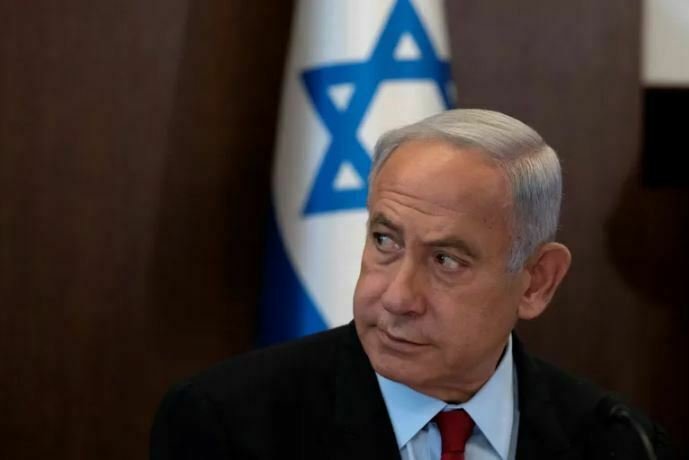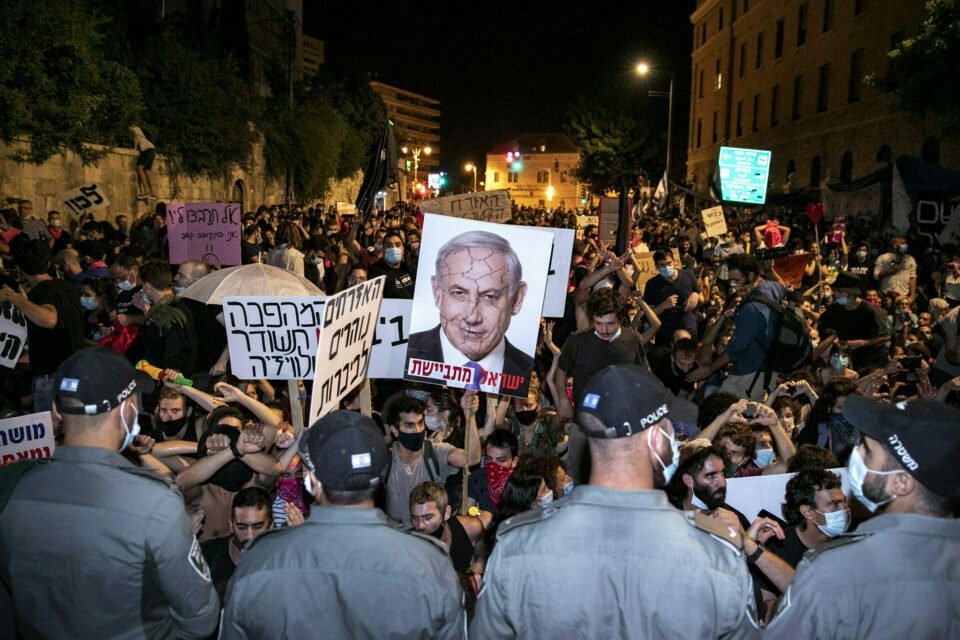Israel protests as PM Netanyahu postpones legal reforms following a strike day.
Israel is experiencing a return to uneasy calm following Prime Minister Benjamin Netanyahu’s announcement that he would postpone a significant portion of the contentious plans to overhaul the justice system.

To avoid a “rupture among our people,” he said he would halt the legislation on Monday night.
However, a delay might only buy time; it’s unclear what else it will accomplish.
After he fired his defense minister for speaking out against the plans, there were more strident protests that followed.
The largest trade union in the nation declared a strike, and Israelis witnessed society collapse around them in an unprecedented event.
Services were suspended everywhere, including the main airport, banks, shops, and even hospitals. The co-ordinated move was aimed to bring Mr Netanyahu back from the brink of pushing through the reforms by the end of this week.
The “biggest crisis in the history of the country,” according to opposition leader Yair Lapid.
The government, the most right-wing Israel has ever seen, wants to seize complete control over the panel that chooses judges. The changes would make it more difficult to declare a prime minister unfit for office and remove them from office. The parliament would be given the power to overrule Supreme Court rulings with a simple majority.

Mr Netanyahu said the amendments would stop judges over-reaching their powers, but critics suggested they would help him as he confronts an ongoing trial for corruption. In three separate trials, he was accused of engaging in bribery, fraud, and breach of trust. The prime minister denies any wrongdoing and claims he is the victim of a “witch hunt”.
Since the planned reforms were published on January 4, practically all facets of Israeli society, including some of its powerful military, have expressed their dissatisfaction. On Monday night, when he finally addressed the country, he was quick to place blame.
He criticized military reservists who rejected the law by announcing they wouldn’t show up for duty and accused a “extreme minority” of attempting to stoke division in the country. It was not acknowledged that he contributed to the turmoil in the nation.
Although Mr. Netanyahu’s solution will buy him some time, it won’t address the issue at hand because protesters fought to have this bill repealed, not simply delayed.
The opposition to Israel has stated that new negotiations will begin.
The Jewish Power party, a member of Mr. Netanyahu’s far-right coalition, said that in exchange for an assurance that Mr. Netanyahu would enact the reforms during the subsequent session of parliament, they had removed their veto on any delay in their passage.
What is the cause of the crisis in Israel?

That could occur at any time beginning at the end of April, when parliament reconvenes after a break that gets under way on Sunday.
Itamar Ben-Gvir, Jewish Power’s leader, also said he supported the postponement since, in exchange, Mr Netanyahu had agreed to put his national security ministry in charge of a new “national guard”.
Supporters and detractors staged counter-protests near the Knesset in the center of Jerusalem. One thing united them – the blue and white flag hoisted by both factions. This is one nation that has been bitterly divided for weeks, and Israelis know it is still not over.
Protests erupted on Sunday after Netanyahu sacked his defence minister Yoav Gallant, who had spoken out against controversial proposals to alter the justice system.
Nevertheless a statewide strike put forth by the Histadrut labour union was called off after Mr Netanyahu stated he would delay the reforms.
The delay, according to Israel’s president Isaac Herzog, was “the right thing to do.” He has earlier urged for an urgent halt to the plans.
Mr Lapid cautiously welcomed the delay to the reform package.
If the government participates in a sincere and fair dialogue, he said, “we can come out of this crisis stronger and more united, and we can turn this into a defining moment in our ability to live together.”
Earlier on Monday, the White House announced that US President Joe Biden would comment on the Israeli prime minister’s choice.
Spokesman John Kirby said the United States remained worried about the situation in Israel but declined to comment directly on the postponement.





